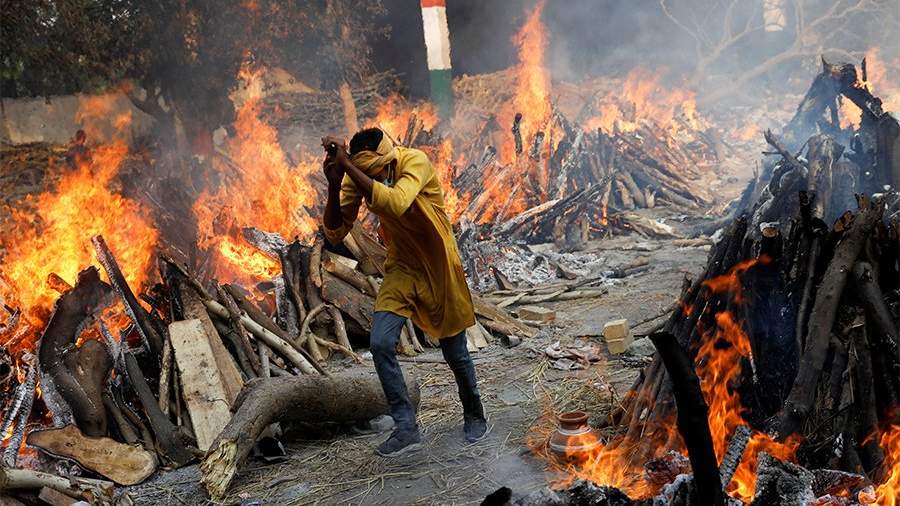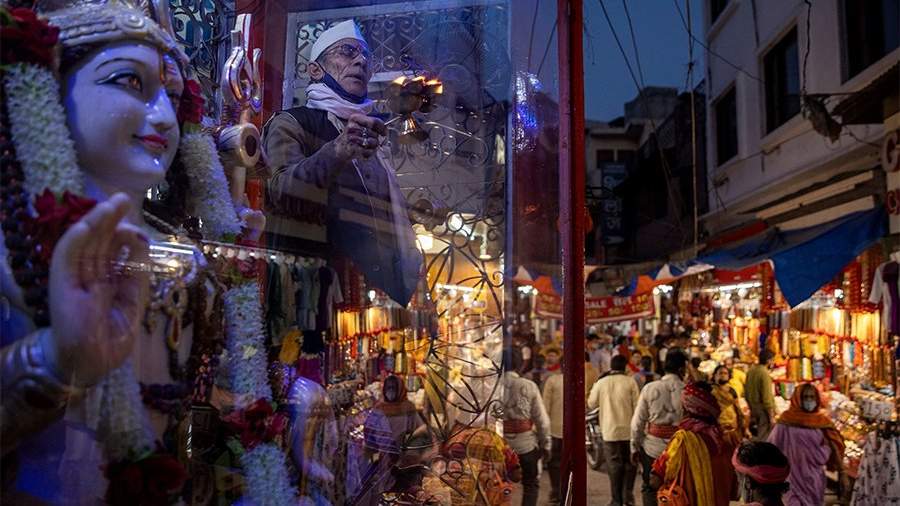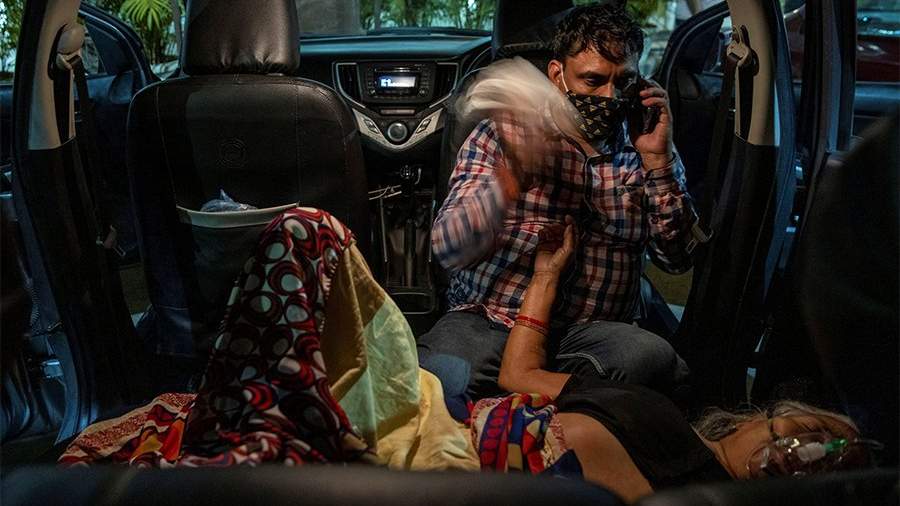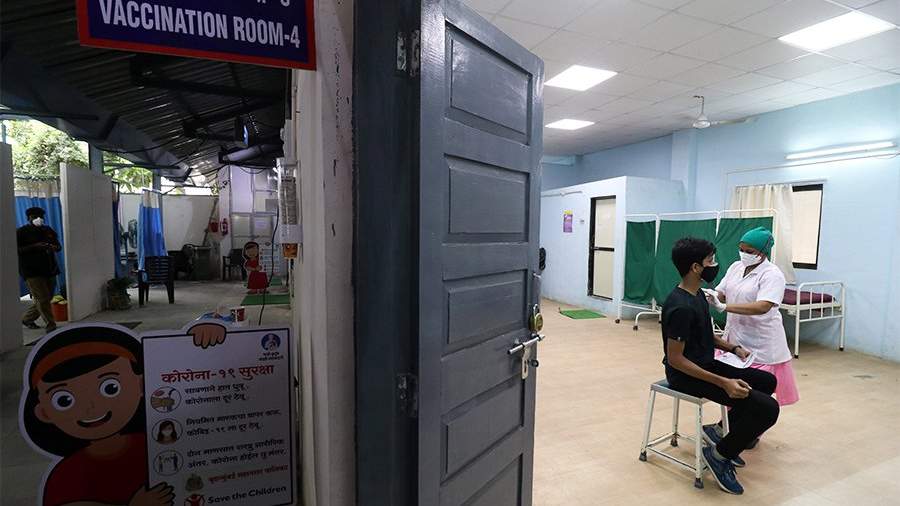The wave of COVID-19 disease that has swept through India has invaded the reality of hundreds of millions of people with the unceremoniousness of a plow plowing the spring land. The Indian press, prone to loud labels, has already called what is happening covid apocalypse. What is happening in a country where 400 thousand cases are registered every day? Izvestia managed to find out the details first-hand after talking with the people of India.
Table Of Contents
“We are old students of the USSR …”
“I am the director of a translation agency. We handle technical and medical documents. We help organize the supply of Indian medicines to the CIS countries. I am 60 years old. I got sick with coronavirus last year. I suffered a lot. I took good medicine and was able to recover in 3-4 weeks, ”said translator Srinad Palvai. In the 1980s, he was educated in the Soviet Union. From there he brought not only a brilliant knowledge of the Russian language, but also his beloved woman Lyudmila, who became his companion for many years.
Vaccination in India is carried out both free of charge, at the expense of the state, and on a commercial basis. In private clinics where the Russian vaccine is available, as it turned out in an interview with Palvai, the price of Sputnik V is still biting.
“We already have two Indian vaccines, but we hope that a vaccine from Russia will help save our people. India will be glad if the drug is sold to us at a cheaper price. Millions of people are suffering, and now is not the time to chase profit. In private clinics, an Indian-made vaccine costs 250 rupees (1 rupee is approximately equal to 1 rupee – Izvestia), and the price of a Russian vaccine is 750 rupees. I have heard this figure on television. Many state ministers are promising to buy the vaccine from commercial firms and distribute it for free, ”Palvai said.
Despite the huge number of victims, most Indians still recover safely, which allows them to believe in the best.
“Many of our people are scared. They queue up for vaccinations. Some of my relatives and friends in other cities died due to lack of oxygen. And the sister and her husband were successfully cured after a month in the hospital. Hope to see a healthy India soon. We are old students of the USSR and love Russia and Russian friends very much. “
“We have a shortage of goods and prices are growing …”
Ranjana Saxena – Professor, Head of the Department of Slavic and Finno-Ugric Languages, Delhi University. The young woman lives in the city of Gurugram, 30 km from New Delhi, the second largest in the state of Haryana with a population of 900 thousand people.
“This time, COVID has brought us Indians unprecedented destruction, loss of life and pain. Almost every family has lost someone. We are afraid to look at our phones in the morning. What’s more painful is the lack of medicines and medical equipment. People go to great lengths to be given hospital beds and oxygen. I live in the National Capital Region and I can’t even imagine the situation in the districts, ”the professor complains.
On April 13, Ranjana was vaccinated, although she was skeptical about the idea of being vaccinated, but her brother, a pharmacologist from the United States, convinced her.
“There were no side effects. However, I immediately drank two tablets for the temperature, ”says Saxena.
Meanwhile, the Indian economy responded to the crisis with bouncing numbers on price tags in stores and a shortage of goods.
“We have a shortage of goods and rising food prices. Bread, vegetables and meat products are growing,” the woman complains.
“Everything is open with us …”
In the capital of the country and surrounding cities, active measures are being taken to combat the disease. But what is happening in the Indian hinterland? The situation there is much more difficult.
“A young relative died, she was 27 years old. She has a little son left. He is only two years old. How will he live? It’s very, very difficult here. There are no places in hospitals. Many die every day, ”says Abhinav Kumar Singiy, who studied Russian at Jawaharlal Nehru University. He lives in a small by Indian standards town of Munger (Bihar state) with a population of 250 thousand people.
Paradoxically, at the height of the pandemic, unlike last year, the Indian authorities did not impose restrictions on movement within the country. Which has its pros and cons.
“This time everything is open with us. Bus, train, subway. It all works. When the first cases of coronavirus were, the government closed everything. We couldn’t travel. Some workers who worked in big cities walked home on foot, walking 3 thousand km. But now there are areas where very, very many are sick, but everything is open there too. It’s very hard”.
Singyi laments the uneven development of medical infrastructure in the country, leaving many Indians without proper care.
“We have a small, small city and a small, small state. The most important cities are Chennai, Delhi, Mumbai. There are very good hospitals there. But this is very expensive. The small town also has hospitals, schools, and transport, but the level is not very good“, He says.
But what if you get sick? If you have money, no problem. But what about poor citizens?
“It’s hard to find a good doctor. But the government agency has materials, medicines. If there is no room and the disease is not serious, they provide everything you need. You can self-medicate. I was also a little sick, there was only a temperature. I received all the medicines for free at home, ”explains Singy.
Residents of provincial cities are looking forward to when the vaccination program will reach their places. Many people think about getting vaccinated with a Russian drug.
“Among my friends, no one has been vaccinated yet, but soon we will have such an opportunity. I would be vaccinated with the Russian vaccine. I believe she is good. Russia is a great country, ”the young Indian shares his plans.
“We don’t go anywhere …”
Indian youth these days are on the brink when a person has not yet lost his optimism, but is about to lose confidence in the future.
Om Shrestkh is a student who has devoted all his time to the professional study of the Russian language. His hometown is Bodh Gaya, Bihar state, a very tiny town, where you will not even count 50 thousand inhabitants. He confirms: the general vaccination in India has really begun on May 1.
“In my city, in almost every home, one of the family members fell ill. So I will get vaccinated tomorrow or the day after tomorrow. And my mom did it today. At first she didn’t want to, she was worried, didn’t know if she would stay healthy after the injection. I convinced her, and she made up her mind. I heard about “Sputnik” that it improves immunity very well, if this is true, I will take it.“, – says the young man.
Shrestkh himself has so far managed to avoid illness, however, for this he had to live almost according to Brodsky, without leaving the room: “In order not to get infected, we don’t go anywhere. Even for a walk. We sit at home and drink hot drinks from time to time: tea, medicinal decoctions. “
Decoctions with herbs and spices are part of traditional Indian medicine. They became the basis of prevention for many residents of the country in combination with fruits rich in vitamins: lemons, oranges and, of course, amla – completely unknown in our country, but extremely popular Indian gooseberries.
In the meantime, the only reason to cross the threshold for Ohm is shopping trips, which, by the way, can be done only at certain times of the day:
“Shops here are open only in the evening. They are closed day and night. It is not always possible to buy. “
Although Indians have the physical ability to leave their homeland, they do not, says Om: “People will not leave. Because of families, everyone has parents, relatives, and therefore no one wants to leave the country. “
“My father is forced to live separately from us”
At the forefront of the fight against disease are, as elsewhere, doctors. Today, when morbidity and mortality are showing horrific leaps, it is especially hard for them.
“My father is a medical worker. Now he is forced to live separately from us for precautionary reasons. This goes on for a whole year. He works day and night, ”says Punjab University graduate student Priti Kulhari.
Colleagues of Prity’s father became infected with COVID 19 – everyone who did not have time to get vaccinated.
“Most of its employees are affected by the coronavirus. They are now isolated at home. And the father is working because he received two doses of the vaccine. We worry all the time, ”the girl says. In the town of Taranagar, where she comes from, the Internet is not very high-quality and the connection is constantly cut off. Her phrases, as laconic as telegrams, are reminiscent of messages from the battlefield.
In a sense, all of India these days is a huge battlefield. And if the Indians win, we will all win.




